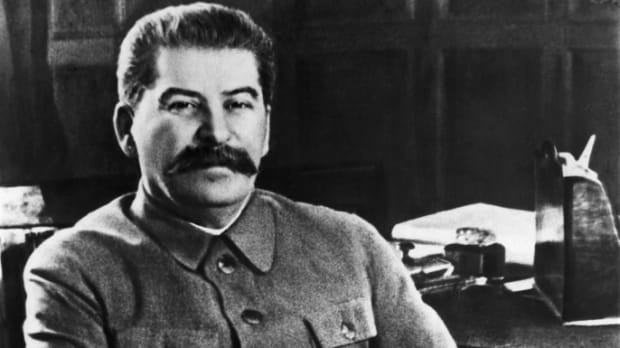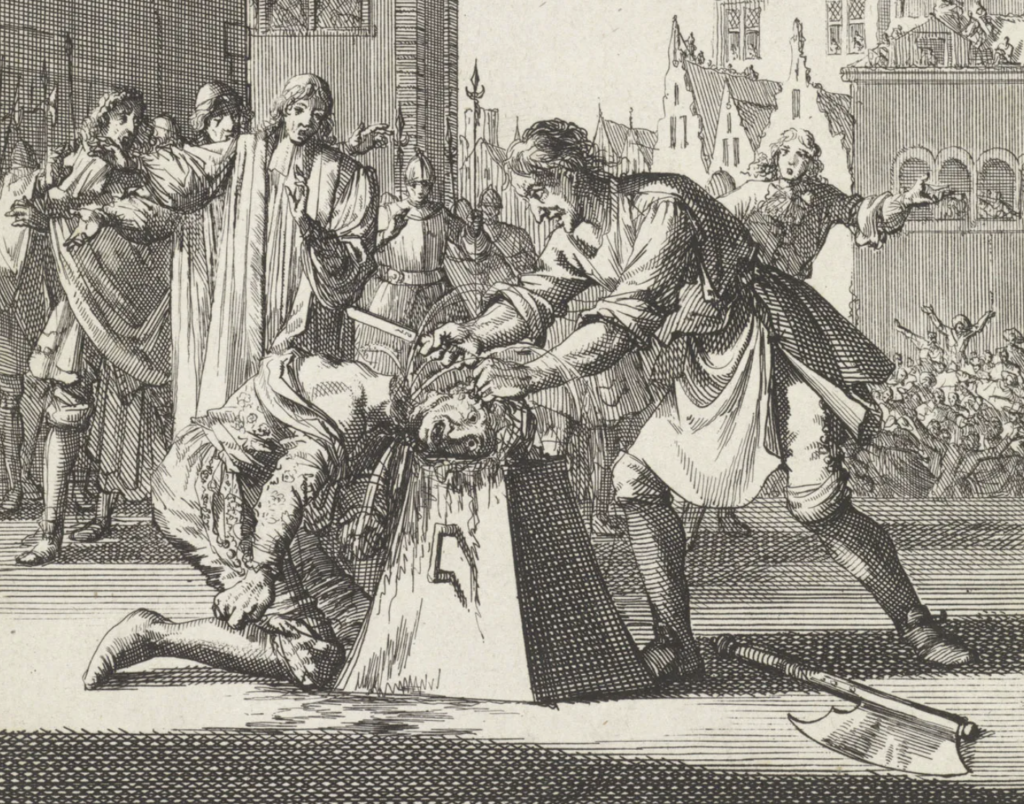Last updated on January 25th, 2023 at 10:59 pm
Ivan the Terrible was the infamous sixteenth-century ruler of the Duchy of Muscovy. He paradoxically was both an unhinged tyrant and the man who founded the Russian state.
Ivan succeeded his father as grand ruler of the Duchy of Muscovy or Moscow when he was just three years old in 1533. Over the course of a long fifty-year reign, he expanded it to become the predominant state in Russia, conquering Kazan and Astrakhan south towards the Caspian Sea.
He was also proclaimed the first Tsar of all Russia and began expanding eastwards towards Siberia.
Conversely, he was prone to bouts of rage, paranoia, and mental illness and established the Oprichnina, Russia’s first form of the secret police, and oversaw a period of intense state terror and purges.
But, while many are familiar with Ivan’s brilliant accomplishments and terrible deeds, few are familiar with his private life and, in particular, the details of his many marriages.
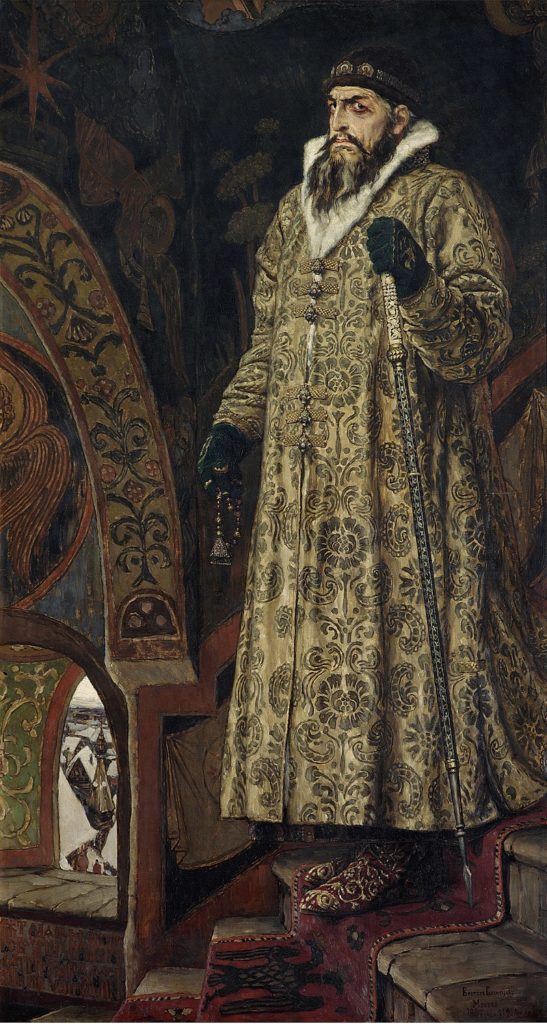
How Many Times was Ivan the Terrible Married?
Scholars believe Ivan married up to eight times, surpassing his near-contemporary on the other side of Europe, King Henry VIII of England, for marital turmoil.
Like Henry VIII, Ivan’s first marriage was his longest and most successful. In 1547, when he was still a teenager, he married Anastasia Romanovna, the daughter of one of the most senior nobles at the court in Moscow.
Theirs was a happy union. Anastasia bore Ivan six children over the next ten years, three daughters, Anna, Maria, and Eudoxia, and three sons, Dmitri, Ivan, and Feodor.
Historians have long believed that Anastasia acted as a moderating influence on her husband, and Ivan was not terrible during the thirteen years they were married.
However, in 1560, when they were both just thirty years of age, Anastasia fell seriously ill and died shortly afterward. It was a mysterious illness, and Ivan became paranoid in its aftermath that she had been poisoned or was the victim of some other manner of foul play.
Many scholars have suggested that Anastasia’s death substantially influenced his later tyrannical rule.
Ivan the Terrible’s Second Wife
If Anastasia had been the ideal wife for Ivan, his second spouse, Maria Temryukovna, a noblewoman from the Caucasus region, was certainly not. Ivan married her in 1561, a year after Anastasia’s death, because of her great beauty. But Maria proved a terrible influence.
Vindictive and unused to the usual strictures that dominated court life, she encouraged him to establish the Oprichnina as a kind of bodyguard, which expanded into a secret police with extensive powers at court and in Moscow more generally.
The marriage produced only one son, a boy called Vasili, who died in infancy after just six weeks. After that, their marriage became increasingly turbulent, and when Maria died in September 1569, many suspected that Ivan had ordered her to be poisoned.
A Quick Succession of Marriages
While Ivan’s first two marriages had ended in tragedy and both women died prematurely under suspicious circumstances, both had lasted many years, and Ivan’s marriage to Anastasia had at least been happy and resulted in children.
But after Maria’s death, things descended into a rapid succession of marriages, much like what occurred with Henry VIII in England between the mid-1530 and the early 1540s when Henry entered into five of his six marriages.
Ivan’s turnover of spouses was even more extreme. In October 1571, he married Marfa Sobakina, the daughter of a merchant from Novgorod, the second-largest city in central Russia.
Marfa died after just sixteen days. There seems to be a slight possibility that Ivan was responsible. Still, her death set off a wave of paranoia in which he ordered the executions of dozens of people connected to the Russian court.
Ivan quickly recovered, and in April 1572, he married Anna Koltovskaya, a courtier’s daughter. Anna was the first of Ivan’s wives not to die mysteriously. Instead, when the marriage failed to result in children, Ivan grew tired of her and sent her to a convent.
Another Anna, named Anna Vasilchikova, became Ivan’s fifth wife in 1575. This time, the Orthodox Church in Russia refused to sanction the marriage, as marriage was forbidden by church law on more than three occasions, and Ivan had only been granted a special dispensation for his fourth marriage after special pleading.
This fifth marriage ended exactly the same as the fourth, with Ivan eventually dismissing Anna to a convent after about a year.
Uncertain Details on Ivan the Terrible’s Final Marriages
The details of Ivan’s supposed last three marriages are disputed, particularly those of his alleged sixth and seventh wives, Vasilisa Melentyeva and Maria Dolgorukaya, both of whom are associated briefly with Ivan around 1579 and 1580.
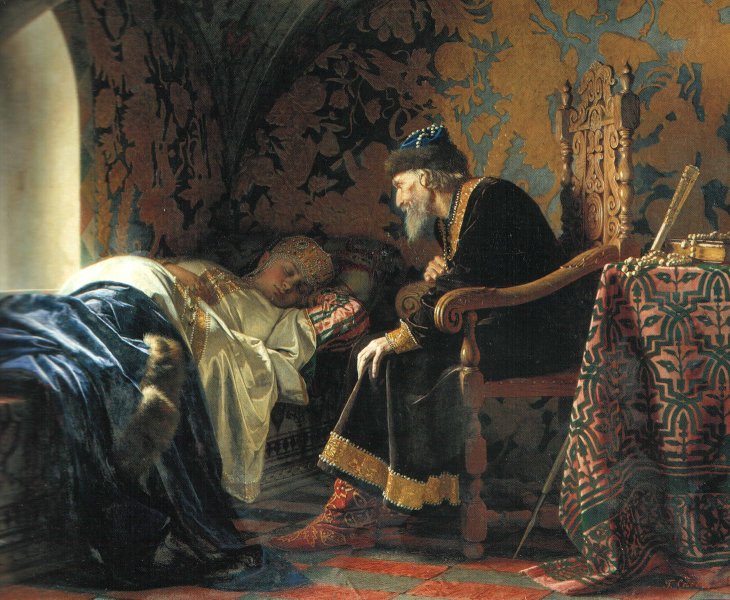
Both were possible concubines viewed as wives, while some scholars have questioned whether Vasilisa existed. There is more certainty regarding Ivan’s eighth and final wife, Maria Nagaya.
They wed in 1581, and a son Dmitry followed shortly afterward. However, the marriage was not happy and the now genuinely unhinged Ivan was plotting to get rid of her and marry again in the early 1580s.
One scheme was that Queen Elizabeth I of England, with whom Russia had formed trade connections in the mid-sixteenth century, would send an English noblewoman to become Ivan’s latest bride.
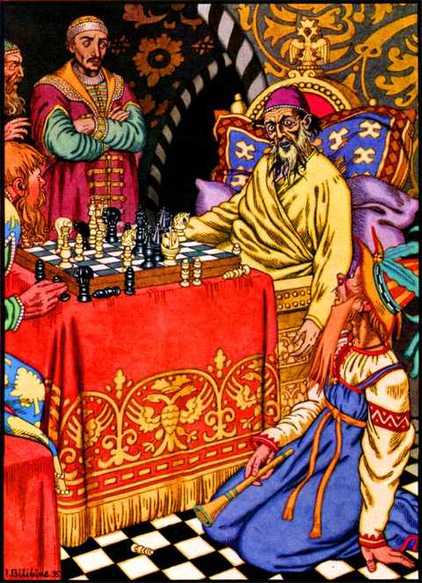
Fortunately for any young woman Elizabeth might have sent to Moscow, Ivan died of a stroke shortly afterward in 1584. Thus, Ivan’s life ended after a run of at least six wives in just over twenty years and possibly as many as eight, while he was on the lookout for number nine at the time of his passing.
After his death, Russia descended into immense instability known as the Time of Troubles.
Related Articles
If you enjoyed this piece, check out some of our related articles:
The tragic lives of Joseph Stalin’s children
Sources
Henri Troyat, Ivan the Terrible (New York, 1988).
Isabel de Madariaga, Ivan the Terrible: First Tsar of Russia (Yale, 2006), pp. 131–132.
Edward L. Keenan, ‘How Ivan Became “Terrible”‘, in Harvard Ukrainian Studies, Vol. 28 (2006), pp. 521–542.
